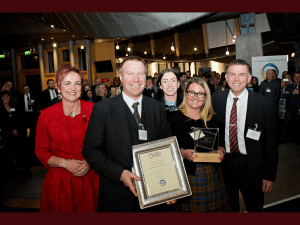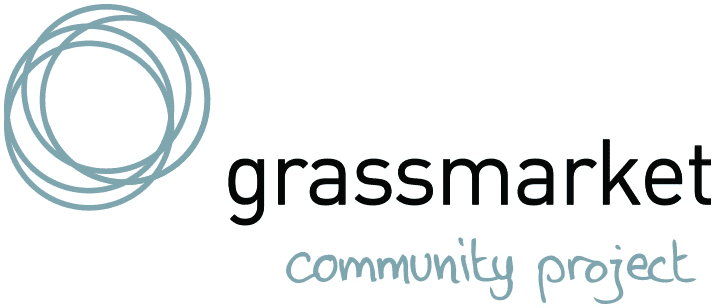Uncategorized
Grassmarket Community Project makes the headlines
We’ve been in the news again, and better late than never because it’s regarding winning Scottish Social Enterprise of the Year in November. A nice Christmas present to have it announced in a national newspaper though!

The Grassmarket Community Project win Social Enterprise of the Year
FIONA LAING
Read more at: https://www.scotsman.com/business/how-commercial-activity-is-having-a-social-impact-1-4632602
Scotland does social enterprise very well and the evidence of this was clearly visible in Edinburgh at the Social Enterprise Awards in November. Social enterprises are thriving and now provide more than 81,000 full-time equivalent jobs, with an annual gross value added of approximately £2 billion, according to the Social Enterprise in Scotland: Census 2017.
So what makes a business a social enterprise? “Essentially it is an organisation that trades goods and services to achieve a social impact,” says Fraser Kelly, chief executive of Social Enterprise Scotland, the member organisation which promotes a positive vision for them. Social enterprises aim to make a profit just like any private sector business. However, 100 per cent of their profits or surpluses are always reinvested back into their social and/or environmental purpose. In addition, social enterprises in Scotland have an “asset lock” on all their buildings, land and other assets.
Social enterprises must be sustainable in order to meet their social and/or environmental mission, although there is no legal definition for them. They come in many guises: community interest companies, social firms, development trusts, credit unions, housing associations and co-operatives and mutuals.
Kelly differentiates between two types of social enterprise. “They are all driven by generating surplus – either through primary purpose trading or through a commercial activity and the gifting of its profits for charitable activity.” The primary purpose trader is a supportive employer of people with significant disadvantages and those people are involved in the delivery of the service that the business provides. “They are in the vanguard of making sure there are employment and development opportunities for people who are very marginalised,” says Kelly. Examples of this type of social enterprise include Haven Products in Clydebank, Inverness and Larbert, Forth Sector and St Jude’s Laundry in Edinburgh and the Bread Maker in Aberdeen. The commercial trader is supporting charitable activities, for example, for the long-term unemployed or for people with mental health issues. “They are tackling some of the big ‘chunky’ intractable problems that Scotland has,” says Kelly, adding that one example is the Callander Hostel, which funds the work of the Callander Youth Project Trust in the Perthshire town. “The Social Enterprise in Scotland: Census 2017 showed that over 70 per cent of all the social enterprise activity in Scotland was focused on either a geographic community or a community of interest – resolving the problems that are important to that community,” he adds.
Kelly points to the housing associations and credit unions as examples of how social enterprise works successfully at a very local level. So where has the social enterprise culture in Scotland come from? “We probably only coined that phrase relatively recently,” admits Kelly. “Community enterprise or community businesses that operate in an environment where they are generating a profit to create social impact have been around probably since the late 1970s, early 1980s. “There was a very productive group of people around at that time who were starting to explore what community business could actually do. “It wasn’t about simply capacity building; it was about community enterprise to make a difference. So it has been a journey since then.
“Scotland still has the most benevolent political environment anywhere in the world for social enterprise. “We were really encouraged by the way the Scottish Government co-produced Scotland’s Social Enterprise Strategy. “It wasn’t a government document, it was co-owned by the social enterprise community. The ten-year action plan that’s flowed from it is fully funded: we are very excited about that.” Kelly adds: “I think cross-party support in Scotland for social enterprise is as strong as anywhere in the world.”
In 2008, the first Social Enterprise World Forum was held in Edinburgh and next year it returns to the city. It was the Grassmarket Community Project in the capital which lifted the Social Enterprise of the Year title at the awards event in the Scottish Parliament on 7 November. The project – a partnership between Greyfriars Kirk and the Grassmarket Mission – creates community and provides sanctuary and support for vulnerable people.
Through mentoring, social enterprise, training and education in a nurturing environment, the project develops skills which enable participants to develop to their full potential and move away from cycles of failure. As well as operating a community café and woodwork and tartan social enterprises, the Grassmarket Community Project offers social integration and educational activities for members. These activities are designed to enhance life skills and develop confidence and include cookery and baking classes, art, drama, IT, reading, writing, sewing and photography.
“It’s a fantastic organisation,” says Kelly. “It makes sure that fundamentally the thing that drives the organisation is its ‘members’ – the people that use its services. “It has a lovely attitude: every member sits down to eat lunch together at the same. “It builds confidence, it builds unity, it builds a sense of belonging to an organisation which is actually making a difference. “And then you start to look at where the people who use the services go in terms of their life journey, the difference they are making is simply fantastic.
“For me, all of this comes down to nothing other than the individual citizen that we should put at the heart of every decision we make. “That is what social enterprise actually does – it puts the individual first.”
Society stars Some of the best known social enterprises in Scotland include: – The Big Issue – The Wise Group – Social Bite – Divine Chocolate – Glasgow Housing Association – Isle of Eigg Heritage Trust – Link Group – Capital Credit Union – Homeless World Cup This article appears in the WINTER 2017 edition of Vision Scotland. Further information about Vision Scotland here.
Read more at: https://www.scotsman.com/business/how-commercial-activity-is-having-a-social-impact-1-4632602
